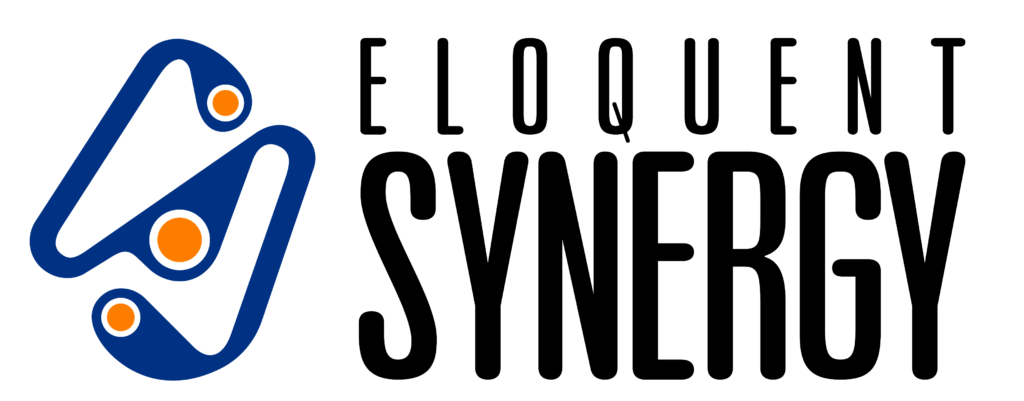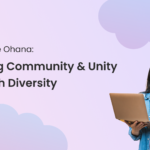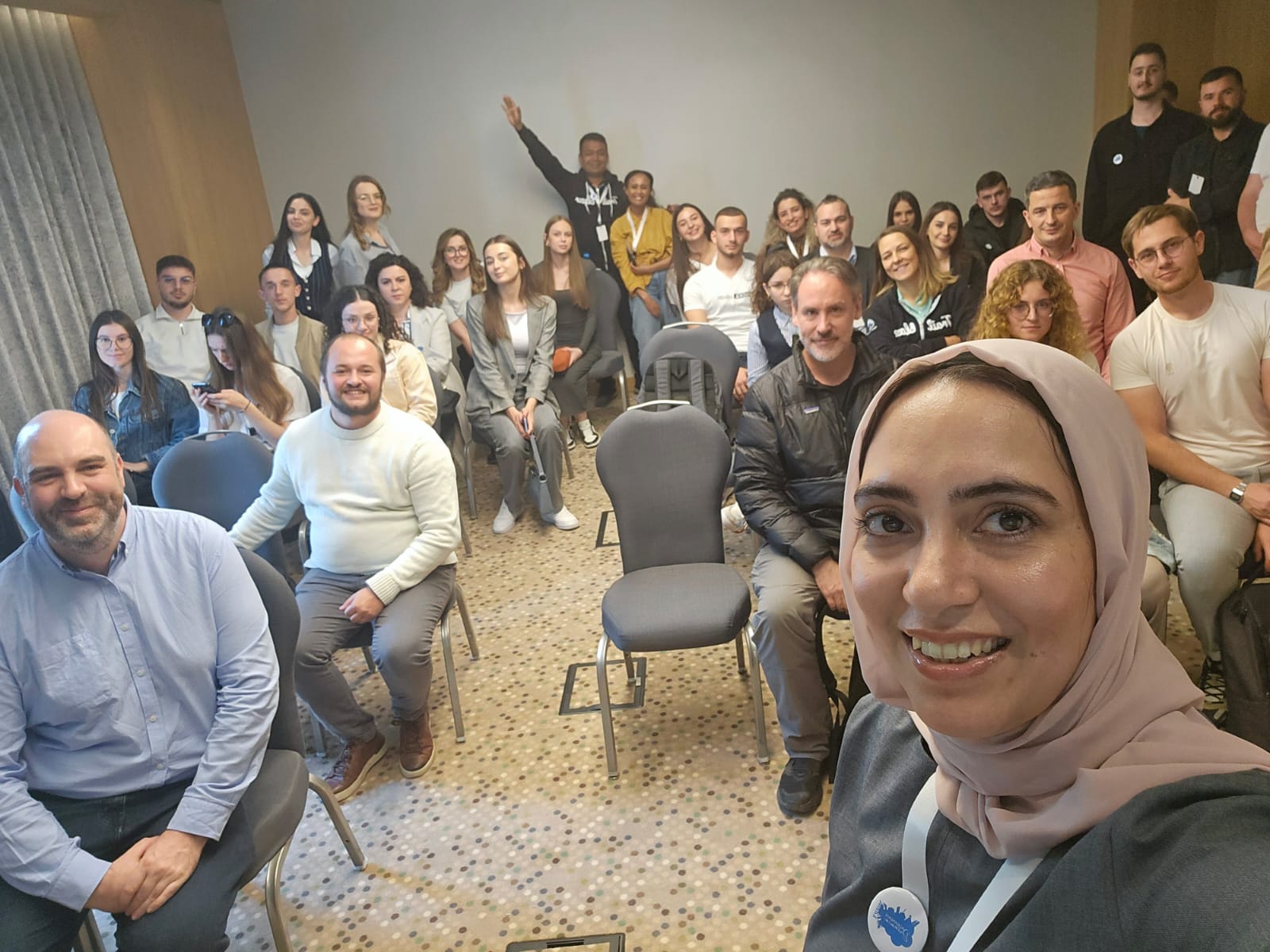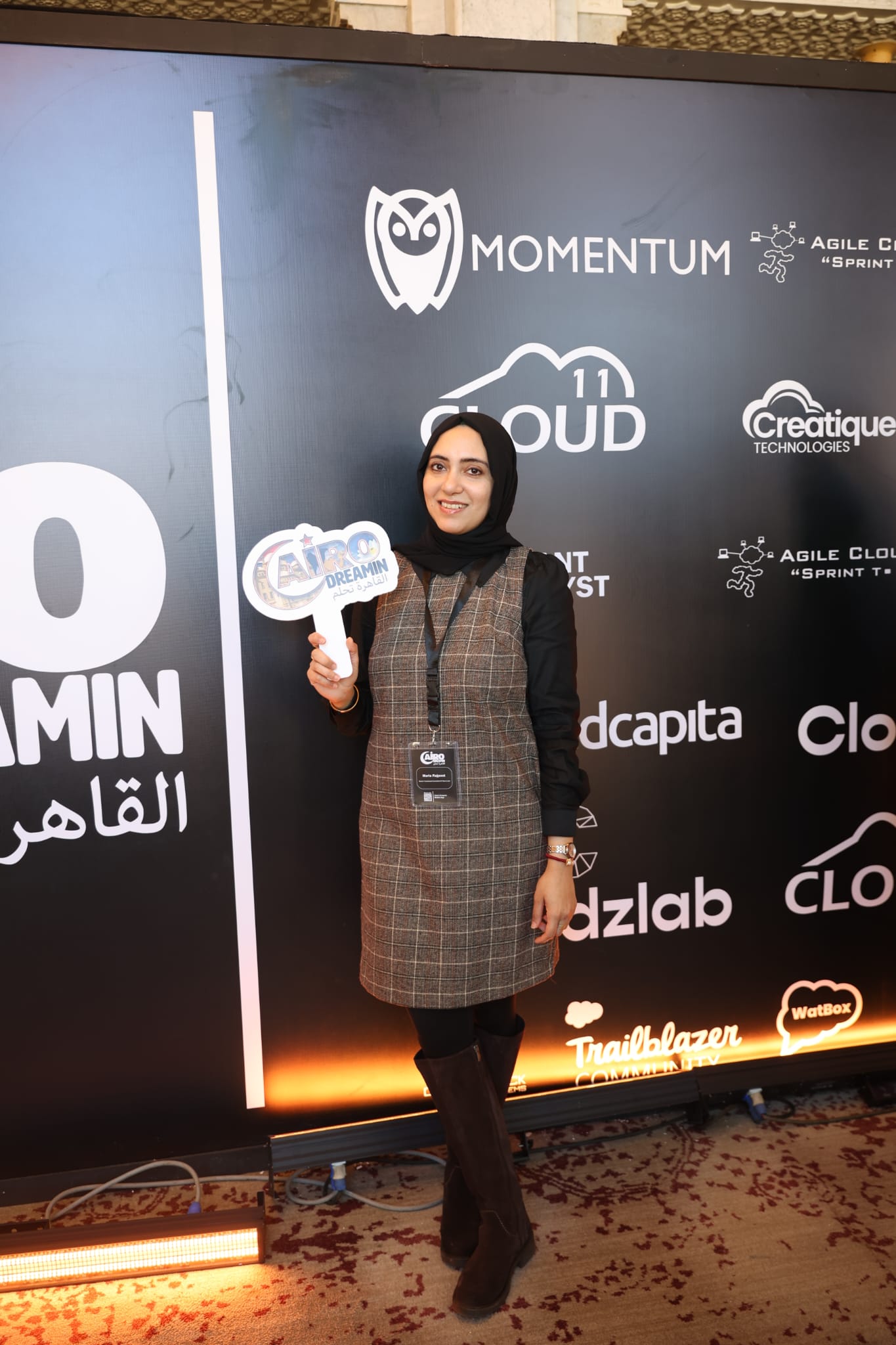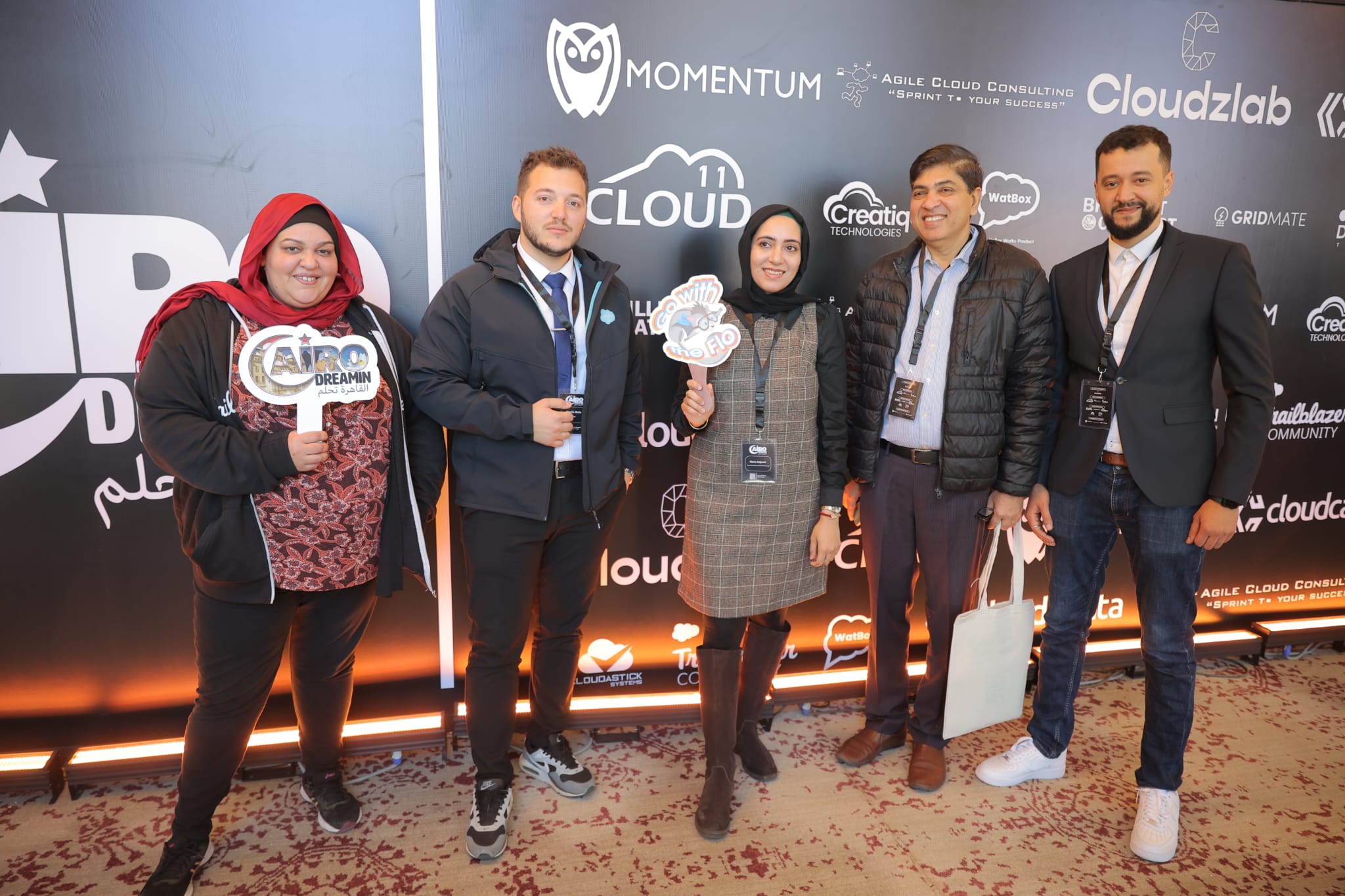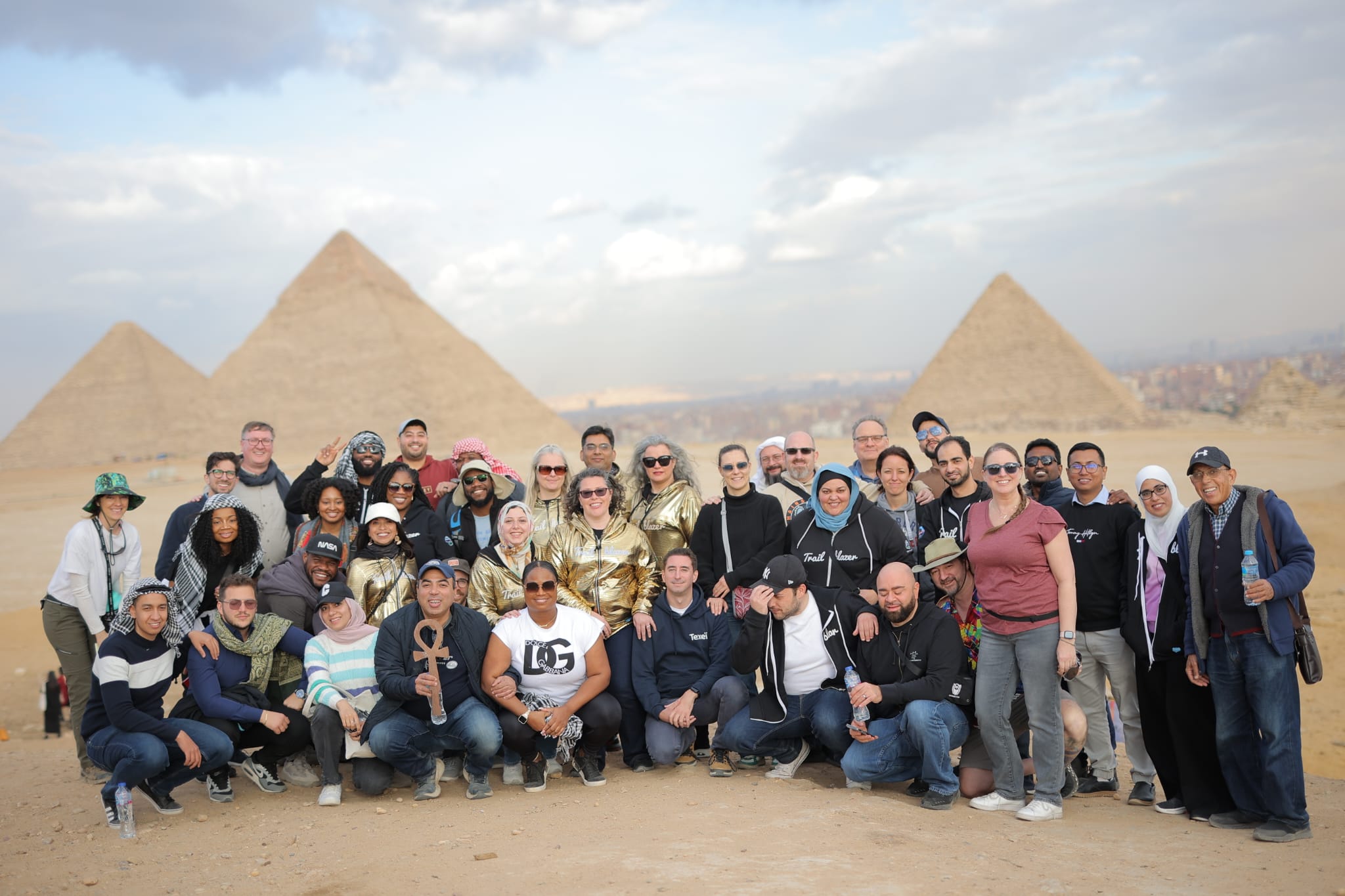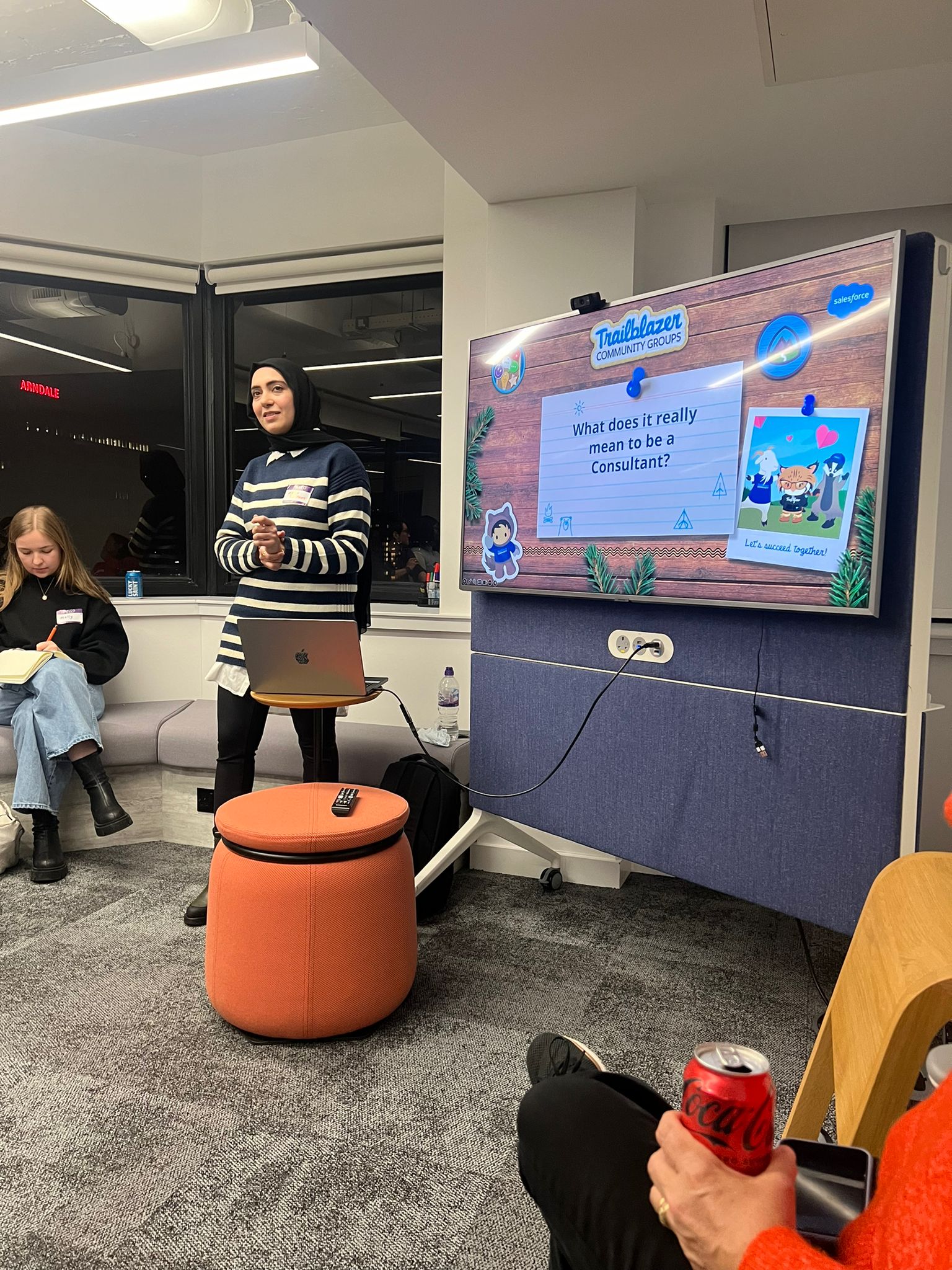Salesforce is dedicated to positively influencing the community it has created. We have all seen the company adopt the term “Ohana,” which lets the world know that it accepts everyone connected to Salesforce. In its true sense, the Salesforce Ohana culture is a lot more than a network of professionals; it is a family!
We are a family of people with shared interests, a passion for progress, and a commitment to ensuring everyone’s success. We are a family free from bias or any kind of prejudice, where every single person is seen as a human. We are a family where long-lasting friendships are developed from the very first meetup.
My Journey with Salesforce Ohana
At every user meetup or event, I have left with at least one new friend for life. No one sees anyone as competition, either! Everyone is genuinely interested in supporting each other.
The energy I have experienced at all Salesforce events is unmatched. The positivity is in the air wherever Ohana members go. I have always left the Salesforce Dreamin’ conferences with a full heart.
Salesforce has built a diverse community to unite everyone within the ecosystem, whether with customers or employees. After a short browse through Trailhead, anyone can see that Salesforce aims to have a supportive environment to link and upskill all trailblazers.
Salesforce Values
So, let’s look at how Salesforce is leading the way with its approach to connecting people from all over the planet with a community built on positive actions.
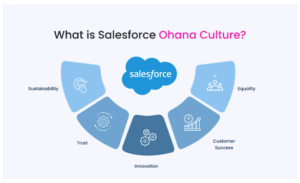 Core Concepts of Ohana from Salesforce
Salesforce takes connecting people within its ecosystem very seriously. It wants to make a difference in the world through equality, pushing technology, and sustaining our planet. So, Salesforce decided to choose the word “Ohana,” which means “family” in Hawaiian, for its company culture, and it seems quite apt.
Here are some of the other parts that make up Salesforce Ohana:
Ohana in the Salesforce Community
The Salesforce community has a culture valued by all members. We call ourselves trailblazers and treat each other respectfully while encouraging collaboration on projects or ideas. Our behavior across the Salesforce community has created a vibe where members feel they are part of a family and not just a group of co-workers.
Additionally, Salesforce diversity and inclusion exist in the work environment. All employees are included and feel appreciated. This allows the workforce to contribute to projects confidently and happily, which in turn reinforces the Ohana company culture.
Social Impact from Salesforce Ohana Culture
Beyond the ecosystem, Salesforce also recognizes its Corporate Social Responsibility (CSR). They are a philanthropic company and inspire their workforce to be charitable by volunteering and participating in causes.
Salesforce has a popular 1-1-1 model, which it has been practicing since 1999. Essentially, the company has committed the following to nonprofit organizations:
Core Concepts of Ohana from Salesforce
Salesforce takes connecting people within its ecosystem very seriously. It wants to make a difference in the world through equality, pushing technology, and sustaining our planet. So, Salesforce decided to choose the word “Ohana,” which means “family” in Hawaiian, for its company culture, and it seems quite apt.
Here are some of the other parts that make up Salesforce Ohana:
Ohana in the Salesforce Community
The Salesforce community has a culture valued by all members. We call ourselves trailblazers and treat each other respectfully while encouraging collaboration on projects or ideas. Our behavior across the Salesforce community has created a vibe where members feel they are part of a family and not just a group of co-workers.
Additionally, Salesforce diversity and inclusion exist in the work environment. All employees are included and feel appreciated. This allows the workforce to contribute to projects confidently and happily, which in turn reinforces the Ohana company culture.
Social Impact from Salesforce Ohana Culture
Beyond the ecosystem, Salesforce also recognizes its Corporate Social Responsibility (CSR). They are a philanthropic company and inspire their workforce to be charitable by volunteering and participating in causes.
Salesforce has a popular 1-1-1 model, which it has been practicing since 1999. Essentially, the company has committed the following to nonprofit organizations:
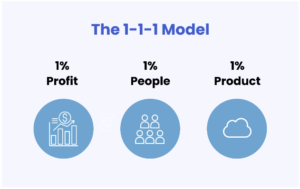 If you can calculate these valuable resources, you will find that Salesforce has contributed millions of hours and dollars to thousands of nonprofit organizations. But it does not stop there. Salesforce also cares about our habitat, not just people.
Salesforce does its bit to sustain the environment by creating operations that reduce its carbon footprint and assists green practices and projects.
How Does Attending Salesforce Events Embody Ohana?
One way Salesforce can contribute to fostering the Ohana philosophy is by throwing events and encouraging trailblazers to host their own events. Trailblazers can do this by registering as a community group leader. Although Salesforce organizes many events itself like Dreamforce, World Tours, and TrailblazerDX, the company also empowers community group leaders worldwide to take the lead and contribute back to the ecosystem with their own hosted events
If you wish to know more about Salesforce events and which one is more suited to your needs, look out for my next blog! We will explore exciting topics that include Salesforce events for partners, customers, and other trailblazers in the community.
Challenges of Salesforce Ohana
Of course, attending all of the events might not be possible. I suggest finding the ones that match your interests so that you can stay updated with your particular Salesforce product. And now for a little interactive discussion. Think about these questions and give the community your opinions. I would love to hear your thoughts:
Will Salesforce sustain the Ohana culture, considering its size and growth?
How do you think Salesforce is maintaining the Ohana culture across different offices?
Salesforce Ohana Impacting the Future
We live in a world where the media does more to divide people than bring them together. There is so much goodness in this world, no matter what faith, country, or ethnicity we present. At the end of the day, we are all humans.
We all have emotions and feelings and cherish good relationships. And this is where Salesforce brings people from all over the world together to form meaningful connections. Sometimes, these connections are frowned upon, not appreciated, or unaccepted by many.
This is why I love the open-mindedness and big hearts of everyone within the Salesforce community. It is incredible that I have had the opportunity to make what I would like to call friends for life from these events. Every time I meet them, the love I receive really warms my heart.
This feeling in today’s world is so valuable and incredible! It’s hard to even explain how much of a rarity it has become. From Salesforce Ohana, businesses can learn to generate supportive and positive behaviors that create happier and thriving communities for professionals. When individuals feel their best, they can work productively and effectively to collectively raise organizations to new heights with colleagues.
If you can calculate these valuable resources, you will find that Salesforce has contributed millions of hours and dollars to thousands of nonprofit organizations. But it does not stop there. Salesforce also cares about our habitat, not just people.
Salesforce does its bit to sustain the environment by creating operations that reduce its carbon footprint and assists green practices and projects.
How Does Attending Salesforce Events Embody Ohana?
One way Salesforce can contribute to fostering the Ohana philosophy is by throwing events and encouraging trailblazers to host their own events. Trailblazers can do this by registering as a community group leader. Although Salesforce organizes many events itself like Dreamforce, World Tours, and TrailblazerDX, the company also empowers community group leaders worldwide to take the lead and contribute back to the ecosystem with their own hosted events
If you wish to know more about Salesforce events and which one is more suited to your needs, look out for my next blog! We will explore exciting topics that include Salesforce events for partners, customers, and other trailblazers in the community.
Challenges of Salesforce Ohana
Of course, attending all of the events might not be possible. I suggest finding the ones that match your interests so that you can stay updated with your particular Salesforce product. And now for a little interactive discussion. Think about these questions and give the community your opinions. I would love to hear your thoughts:
Will Salesforce sustain the Ohana culture, considering its size and growth?
How do you think Salesforce is maintaining the Ohana culture across different offices?
Salesforce Ohana Impacting the Future
We live in a world where the media does more to divide people than bring them together. There is so much goodness in this world, no matter what faith, country, or ethnicity we present. At the end of the day, we are all humans.
We all have emotions and feelings and cherish good relationships. And this is where Salesforce brings people from all over the world together to form meaningful connections. Sometimes, these connections are frowned upon, not appreciated, or unaccepted by many.
This is why I love the open-mindedness and big hearts of everyone within the Salesforce community. It is incredible that I have had the opportunity to make what I would like to call friends for life from these events. Every time I meet them, the love I receive really warms my heart.
This feeling in today’s world is so valuable and incredible! It’s hard to even explain how much of a rarity it has become. From Salesforce Ohana, businesses can learn to generate supportive and positive behaviors that create happier and thriving communities for professionals. When individuals feel their best, they can work productively and effectively to collectively raise organizations to new heights with colleagues.
 Core Concepts of Ohana from Salesforce
Salesforce takes connecting people within its ecosystem very seriously. It wants to make a difference in the world through equality, pushing technology, and sustaining our planet. So, Salesforce decided to choose the word “Ohana,” which means “family” in Hawaiian, for its company culture, and it seems quite apt.
Here are some of the other parts that make up Salesforce Ohana:
Ohana in the Salesforce Community
The Salesforce community has a culture valued by all members. We call ourselves trailblazers and treat each other respectfully while encouraging collaboration on projects or ideas. Our behavior across the Salesforce community has created a vibe where members feel they are part of a family and not just a group of co-workers.
Additionally, Salesforce diversity and inclusion exist in the work environment. All employees are included and feel appreciated. This allows the workforce to contribute to projects confidently and happily, which in turn reinforces the Ohana company culture.
Social Impact from Salesforce Ohana Culture
Beyond the ecosystem, Salesforce also recognizes its Corporate Social Responsibility (CSR). They are a philanthropic company and inspire their workforce to be charitable by volunteering and participating in causes.
Salesforce has a popular 1-1-1 model, which it has been practicing since 1999. Essentially, the company has committed the following to nonprofit organizations:
Core Concepts of Ohana from Salesforce
Salesforce takes connecting people within its ecosystem very seriously. It wants to make a difference in the world through equality, pushing technology, and sustaining our planet. So, Salesforce decided to choose the word “Ohana,” which means “family” in Hawaiian, for its company culture, and it seems quite apt.
Here are some of the other parts that make up Salesforce Ohana:
Ohana in the Salesforce Community
The Salesforce community has a culture valued by all members. We call ourselves trailblazers and treat each other respectfully while encouraging collaboration on projects or ideas. Our behavior across the Salesforce community has created a vibe where members feel they are part of a family and not just a group of co-workers.
Additionally, Salesforce diversity and inclusion exist in the work environment. All employees are included and feel appreciated. This allows the workforce to contribute to projects confidently and happily, which in turn reinforces the Ohana company culture.
Social Impact from Salesforce Ohana Culture
Beyond the ecosystem, Salesforce also recognizes its Corporate Social Responsibility (CSR). They are a philanthropic company and inspire their workforce to be charitable by volunteering and participating in causes.
Salesforce has a popular 1-1-1 model, which it has been practicing since 1999. Essentially, the company has committed the following to nonprofit organizations:
 If you can calculate these valuable resources, you will find that Salesforce has contributed millions of hours and dollars to thousands of nonprofit organizations. But it does not stop there. Salesforce also cares about our habitat, not just people.
Salesforce does its bit to sustain the environment by creating operations that reduce its carbon footprint and assists green practices and projects.
How Does Attending Salesforce Events Embody Ohana?
One way Salesforce can contribute to fostering the Ohana philosophy is by throwing events and encouraging trailblazers to host their own events. Trailblazers can do this by registering as a community group leader. Although Salesforce organizes many events itself like Dreamforce, World Tours, and TrailblazerDX, the company also empowers community group leaders worldwide to take the lead and contribute back to the ecosystem with their own hosted events
If you wish to know more about Salesforce events and which one is more suited to your needs, look out for my next blog! We will explore exciting topics that include Salesforce events for partners, customers, and other trailblazers in the community.
Challenges of Salesforce Ohana
Of course, attending all of the events might not be possible. I suggest finding the ones that match your interests so that you can stay updated with your particular Salesforce product. And now for a little interactive discussion. Think about these questions and give the community your opinions. I would love to hear your thoughts:
Will Salesforce sustain the Ohana culture, considering its size and growth?
How do you think Salesforce is maintaining the Ohana culture across different offices?
Salesforce Ohana Impacting the Future
We live in a world where the media does more to divide people than bring them together. There is so much goodness in this world, no matter what faith, country, or ethnicity we present. At the end of the day, we are all humans.
We all have emotions and feelings and cherish good relationships. And this is where Salesforce brings people from all over the world together to form meaningful connections. Sometimes, these connections are frowned upon, not appreciated, or unaccepted by many.
This is why I love the open-mindedness and big hearts of everyone within the Salesforce community. It is incredible that I have had the opportunity to make what I would like to call friends for life from these events. Every time I meet them, the love I receive really warms my heart.
This feeling in today’s world is so valuable and incredible! It’s hard to even explain how much of a rarity it has become. From Salesforce Ohana, businesses can learn to generate supportive and positive behaviors that create happier and thriving communities for professionals. When individuals feel their best, they can work productively and effectively to collectively raise organizations to new heights with colleagues.
If you can calculate these valuable resources, you will find that Salesforce has contributed millions of hours and dollars to thousands of nonprofit organizations. But it does not stop there. Salesforce also cares about our habitat, not just people.
Salesforce does its bit to sustain the environment by creating operations that reduce its carbon footprint and assists green practices and projects.
How Does Attending Salesforce Events Embody Ohana?
One way Salesforce can contribute to fostering the Ohana philosophy is by throwing events and encouraging trailblazers to host their own events. Trailblazers can do this by registering as a community group leader. Although Salesforce organizes many events itself like Dreamforce, World Tours, and TrailblazerDX, the company also empowers community group leaders worldwide to take the lead and contribute back to the ecosystem with their own hosted events
If you wish to know more about Salesforce events and which one is more suited to your needs, look out for my next blog! We will explore exciting topics that include Salesforce events for partners, customers, and other trailblazers in the community.
Challenges of Salesforce Ohana
Of course, attending all of the events might not be possible. I suggest finding the ones that match your interests so that you can stay updated with your particular Salesforce product. And now for a little interactive discussion. Think about these questions and give the community your opinions. I would love to hear your thoughts:
Will Salesforce sustain the Ohana culture, considering its size and growth?
How do you think Salesforce is maintaining the Ohana culture across different offices?
Salesforce Ohana Impacting the Future
We live in a world where the media does more to divide people than bring them together. There is so much goodness in this world, no matter what faith, country, or ethnicity we present. At the end of the day, we are all humans.
We all have emotions and feelings and cherish good relationships. And this is where Salesforce brings people from all over the world together to form meaningful connections. Sometimes, these connections are frowned upon, not appreciated, or unaccepted by many.
This is why I love the open-mindedness and big hearts of everyone within the Salesforce community. It is incredible that I have had the opportunity to make what I would like to call friends for life from these events. Every time I meet them, the love I receive really warms my heart.
This feeling in today’s world is so valuable and incredible! It’s hard to even explain how much of a rarity it has become. From Salesforce Ohana, businesses can learn to generate supportive and positive behaviors that create happier and thriving communities for professionals. When individuals feel their best, they can work productively and effectively to collectively raise organizations to new heights with colleagues. 